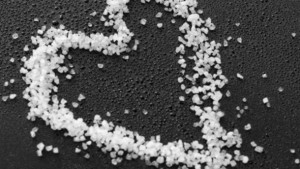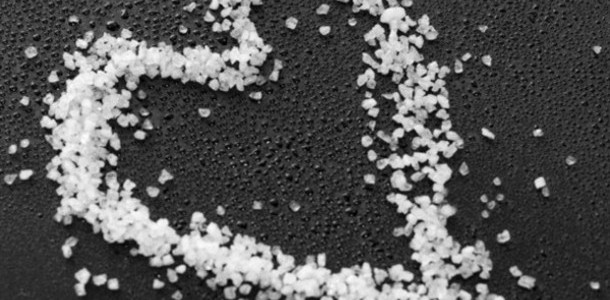Another dietary myth busted in The Blood Code – Dr Richard Maurer
Real salt is not the culprit; processed food, once again, is the culprit.
Salt is essential for every function in your body. Dietary recommendations for salt intake fixate on avoidance, not on how much you should have. Your daily intake should be about 2,400 mg—approximately 1 teaspoon of fine- to medium-grain salt. If you begin your diet with whole, unprocessed foods, you will need to add and ensure adequate salt intake. No study has ever found the high blood pressure / salt connection from the use of salt in the home kitchen or at the table. And in my practice, I frequently see conditions like chronic pain and spasm, fatigue, headaches, urinary frequency and brain-fog resolve with the simple addition of some dietary salt.
So why has everyone been told to reduce their salt intake? Let me explain how this bad science becomes both a common recommendation and dietary policy for you and me. Institutions carelessly treat us all as though we, as individuals, are the statistical average. Here’s the simple example: If you include people who eat highly processed foods: One slice of processed luncheon meat has 500 to 600 mg salt in one slice, so, without including the bag of chips, a loaded Italian sandwich with eight slices of processed meat contains over 4,000 mg of salt. This group will thus consume more than 6,000 mg of salt per day. But there are other people who do not consume processed sandwich meats on a daily basis, and they are ingesting less than 2,000 mg of salt per day. Statistics show that Americans take in an average of about 4,000 mg of salt per day. Researchers therefore surmise that if this average was lowered by 1,500 mg, there would be less high blood pressure. So authorities told everyone to reduce their salt intake by 1,500 mg per day—which is inadequate for those people who consume 6,000 mg per day, and too much salt restriction for people who consume 2,000 mg per day. The people on either end of the bell curve will be worse off if they follow these salt-reduction recommendations.
The Blood Code is about helping you address your unique dietary and nutritional needs in a way that is likely to improve your own life and health. Most of us are not well served by following a list of dietary guidelines that are designed to treat a mathematical average. If you start with whole, unprocessed meats, vegetables, starches, and fats, you will need to add the 2,400 mg of salt yourself. Lay out a teaspoon of salt and make sure it is gone by the end of the day. Research has also shown that as people exercise more, the connection between high blood pressure and salt intake evaporates. If you have hypertension, by all means, avoid processed foods, but do not restrict salt added at home to unprocessed food; it is a necessary mineral/electrolyte nutrient.




Comments are closed.